Christmas Events Are Anything but Merry for Reindeer
The Christmas season is a time for empathy and kindness, not carting sensitive reindeer around to crowded and frightening events.

Happy holidays? Reindeer used in Christmas events never heard of that.
Reindeer, also known as caribou, are herd animals who travel upward of 1,000 miles during their annual migration in nature. But when they’re strapped to Santa’s sleigh and used in Christmas parades, displays, other holiday events, or movies, they’re denied the opportunity to travel, forage, and socialize with others in their herd. Instead, eventgoers harass these sensitive animals with unwanted touches, handlers restrain them with halters and reins, and noisy crowds cause them stress. When they’re not being used at Christmas events, owners keep reindeer at farms, rental facilities, and roadside zoos where handlers often neglect them and fail to give them adequate veterinary care.
At Christmas Events, Reindeer Are Denied Proper Food, Conditions, and Exercise
While reindeer can’t actually fly like Rudolph could, they’re magical in many other ways. These animals are uniquely adapted to live in a tundra environment, with hooves that act as paddles for lengthy river swims, eyes that change color seasonally to account for differing light levels, and hair covering their noses to keep them warm while they sniff out food covered in ice and snow.
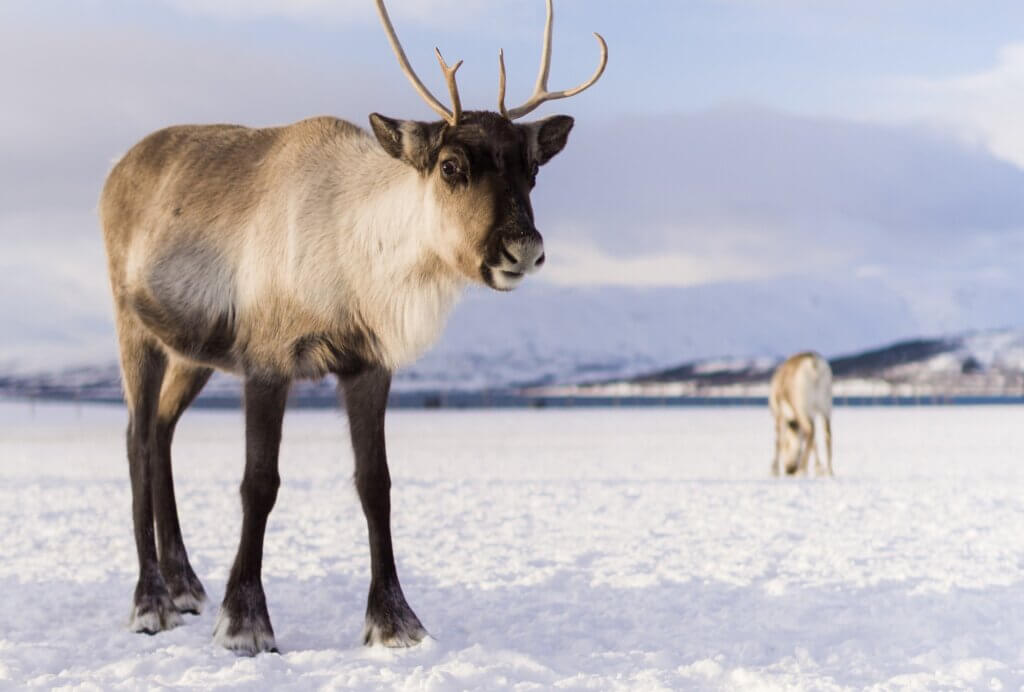
Reindeer forage for tasty mosses and fungi morsels in the winter, and in the summer, they munch on ferns, grasses, and tree leaves. They are sensitive to sudden changes in diet and can develop gastrointestinal disease if their food is changed too quickly. But Christmas event visitors are often encouraged to hand-feed reindeer unhealthy foods too high in grains, which can put their health at risk. In October 2020, a 2-year-old reindeer at a Christmas tree farm in Wales died after a visitor fed him bread and sweets.
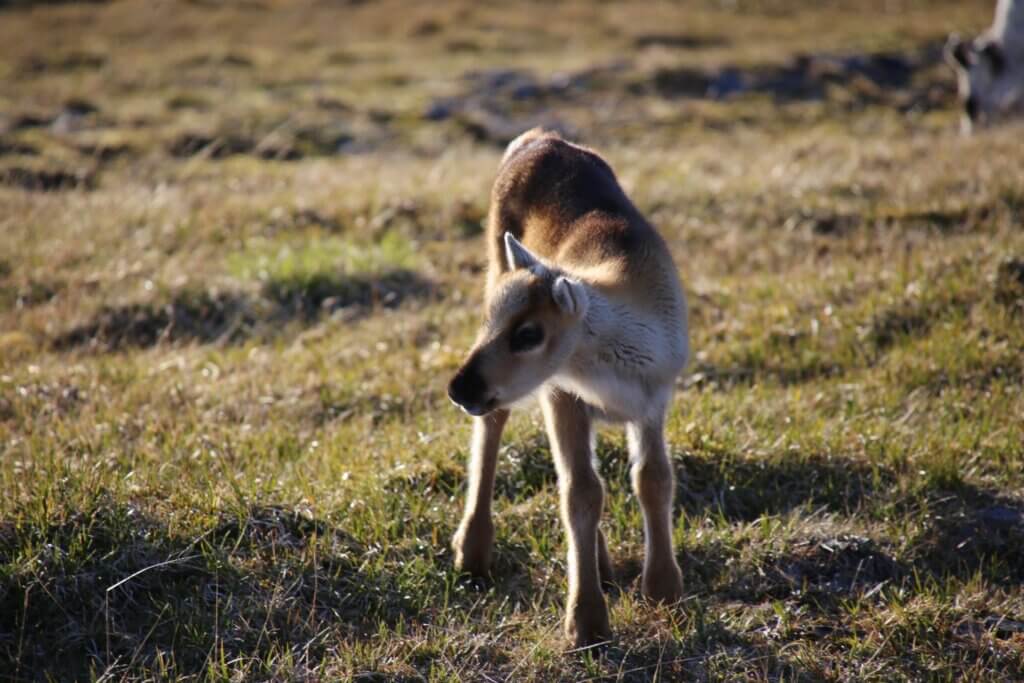
Reindeer feet are very unique. In the summer, the pads on them become spongy to adapt to walking on soft ground. In the winter, these pads tighten and shrink to expose the sharp rim of their hooves, which they use to crack ice and snow. But on solid, unbreakable surfaces like the concrete pavement at many Christmas events, reindeer would be prone to slipping, especially if forced to pull a sleigh. And treating reindeer as inanimate objects, like the sleighs they’re strapped to, is a form of speciesism—a human-supremacist worldview that ignores that animals are thinking, feeling individuals who have the right to live free from exploitation.
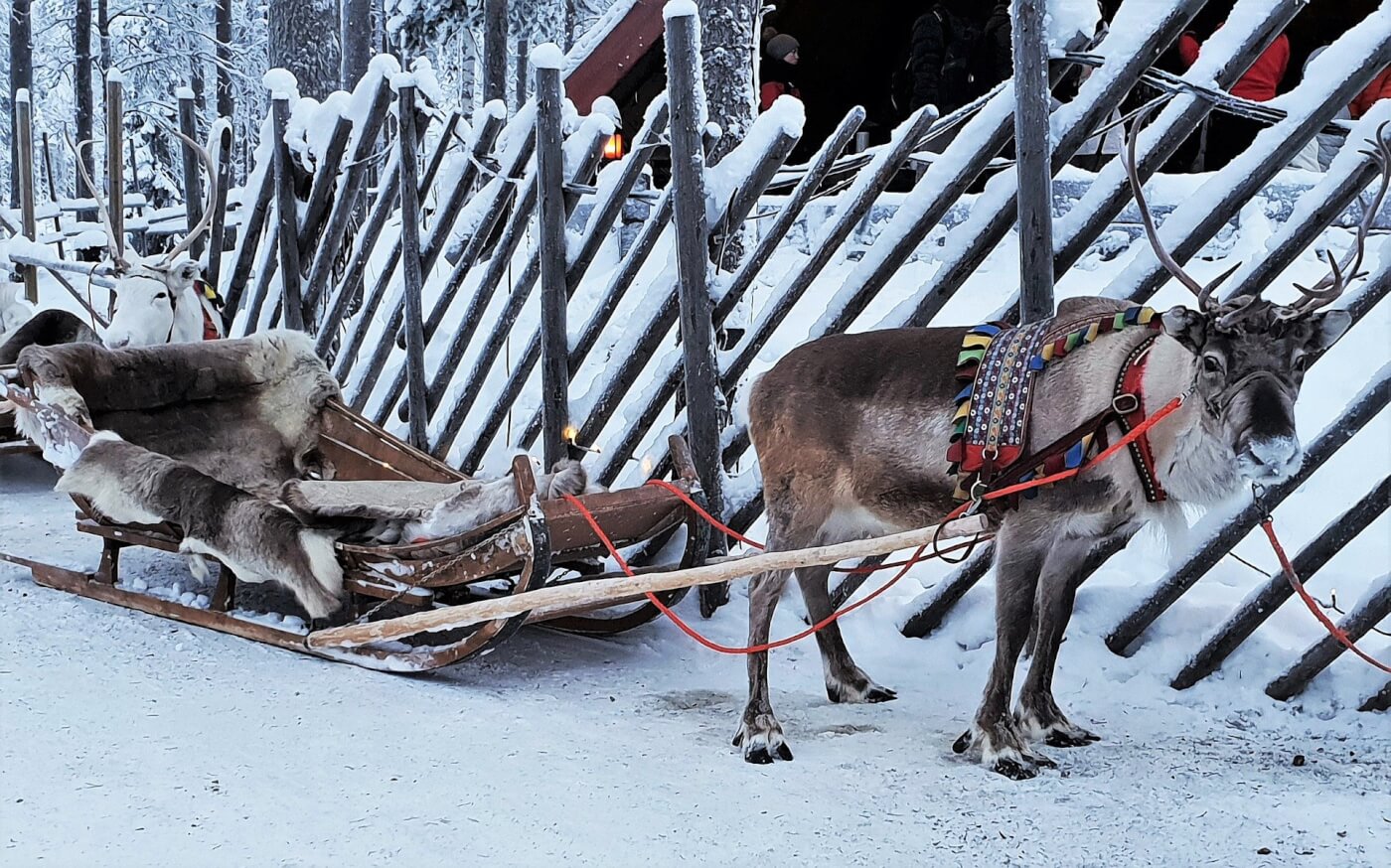
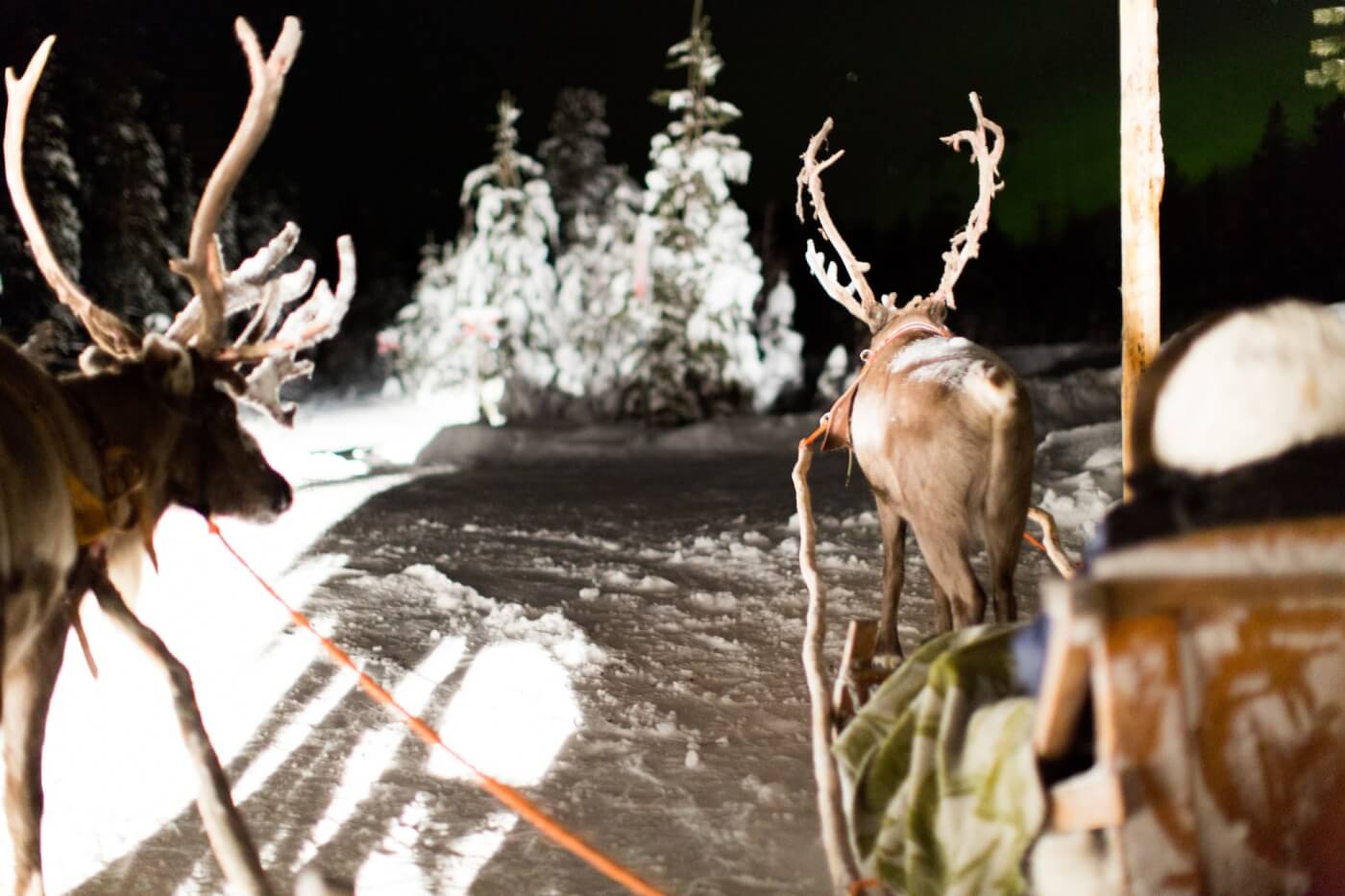
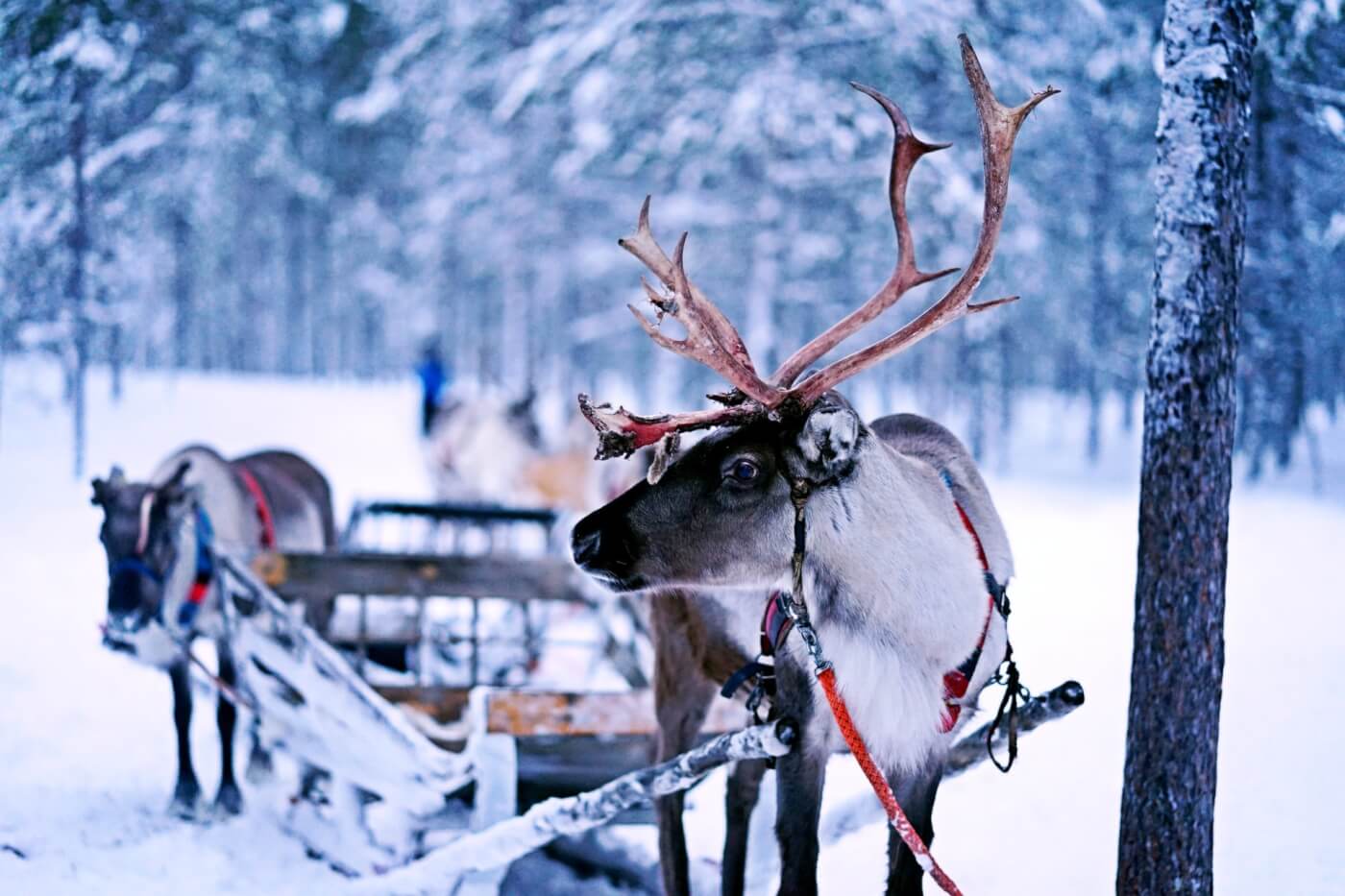
In nature, reindeer herds traverse vast mountain ranges and swim across rivers. Their unique, broad hooves help them paddle fast—up to 6 miles per hour! But when they’re confined at events, rental facilities, or roadside zoos, they tend to have poor muscle development from lack of exercise and can lose weight. Being kept in small spaces can also lead to poor antler growth or malformed antlers for both the males and females, since reindeer are unique among the deer species in that they all have antlers.
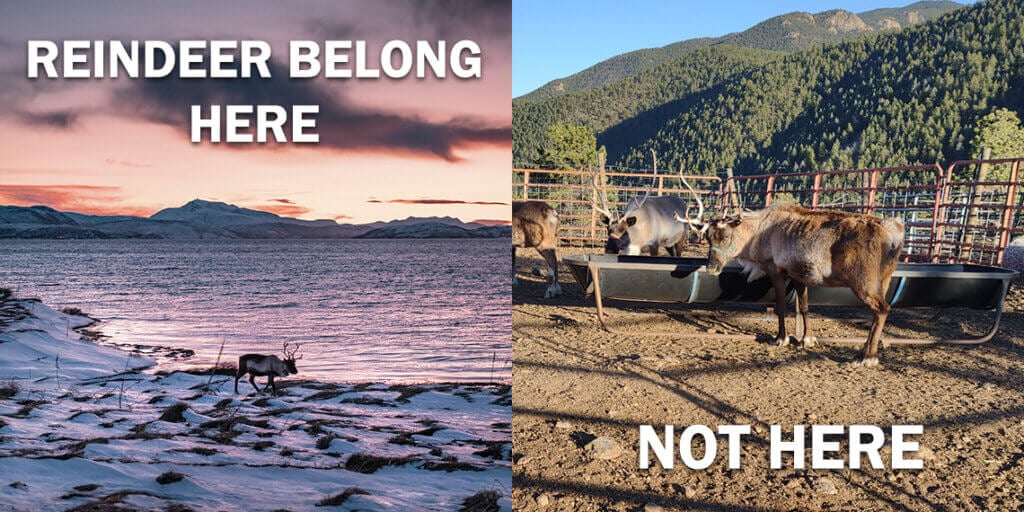
Discover our favorite 12 reindeer facts and learn more about these animals!
Reindeer Suffer for Holiday Entertainment
Reindeer forced to live outside their natural tundra environment need their hooves tended to, and many handlers who confine them for entertainment don’t give them proper routine hoof trimmings. Eyewitnesses have seen reindeer hooves beginning to curl or press into the ground because handlers don’t trim them sufficiently or at all. Many exhibitors have been cited by the U.S. Department of Agriculture (USDA)—some repeatedly—for failing to provide this basic preventive veterinary care. When hooves are overgrown, painful diseases like arthritis can result.
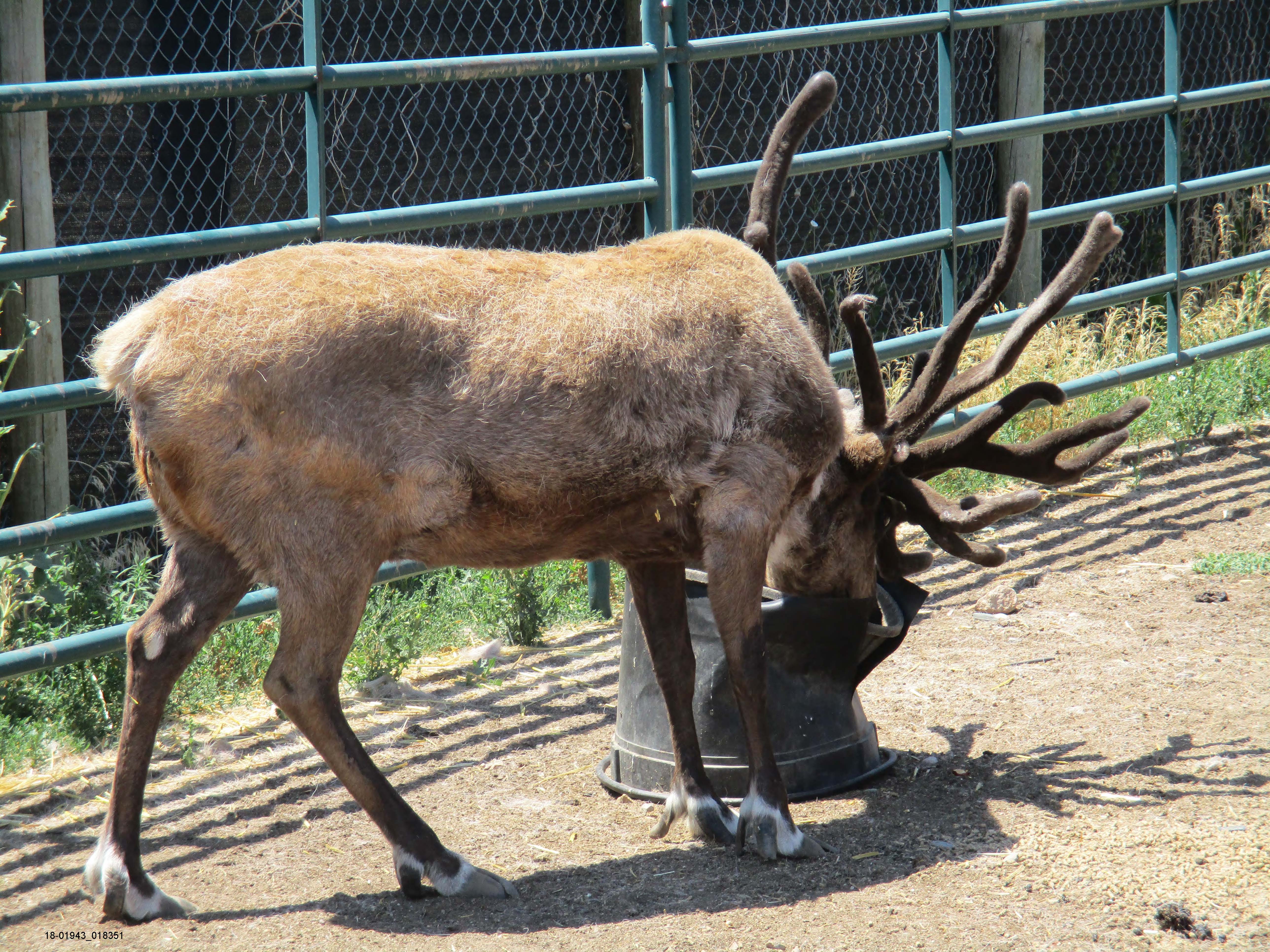
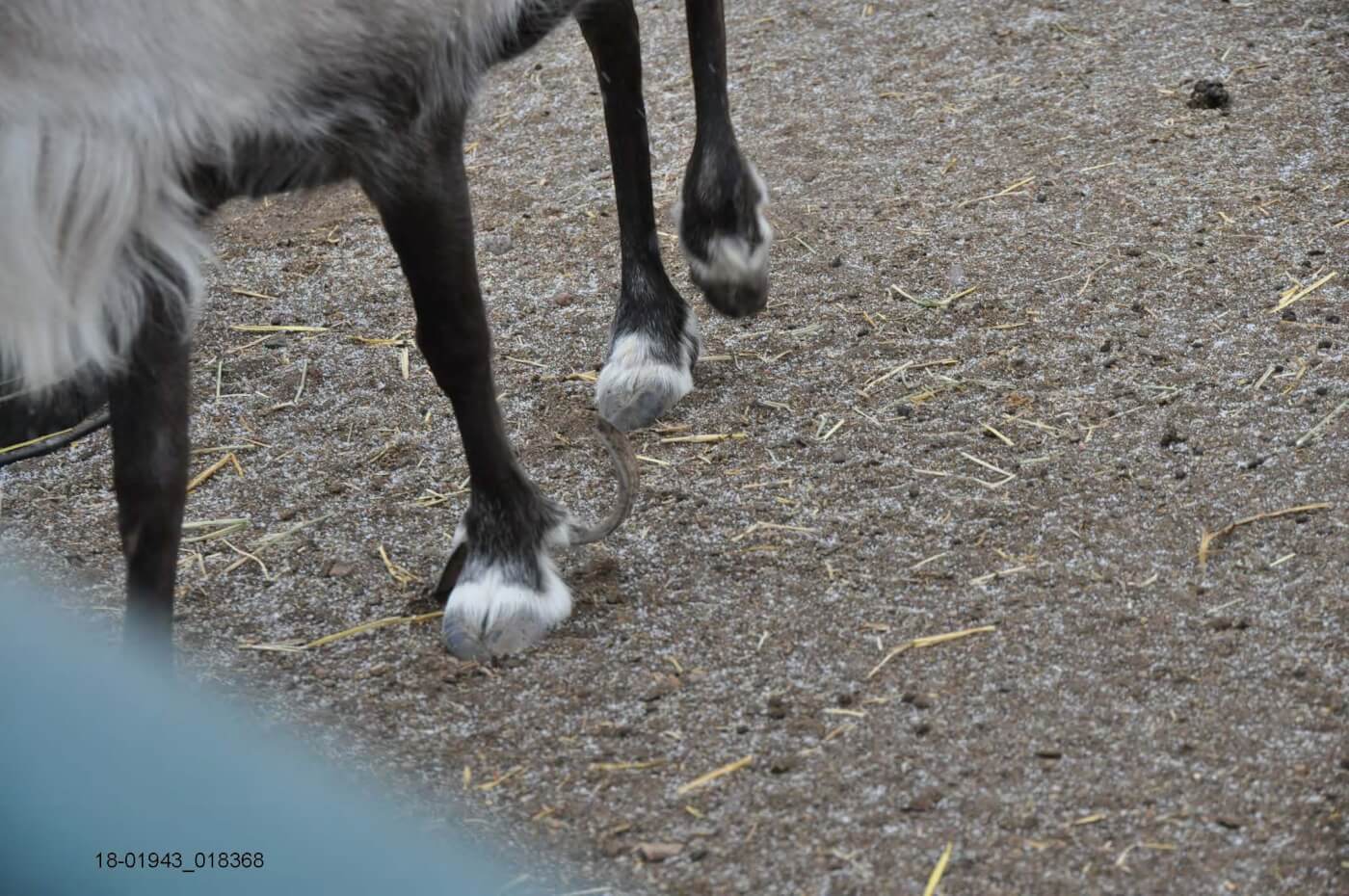
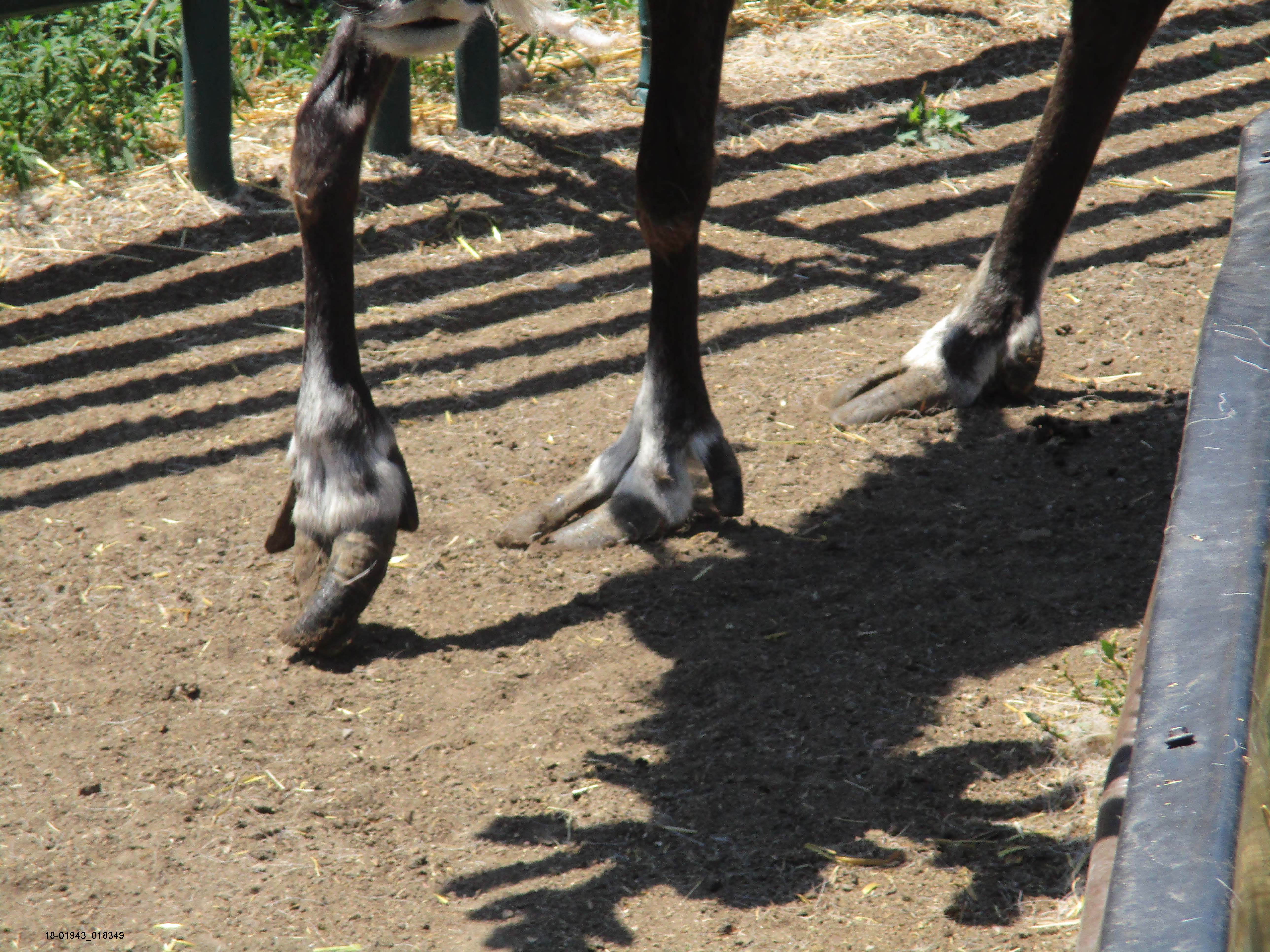
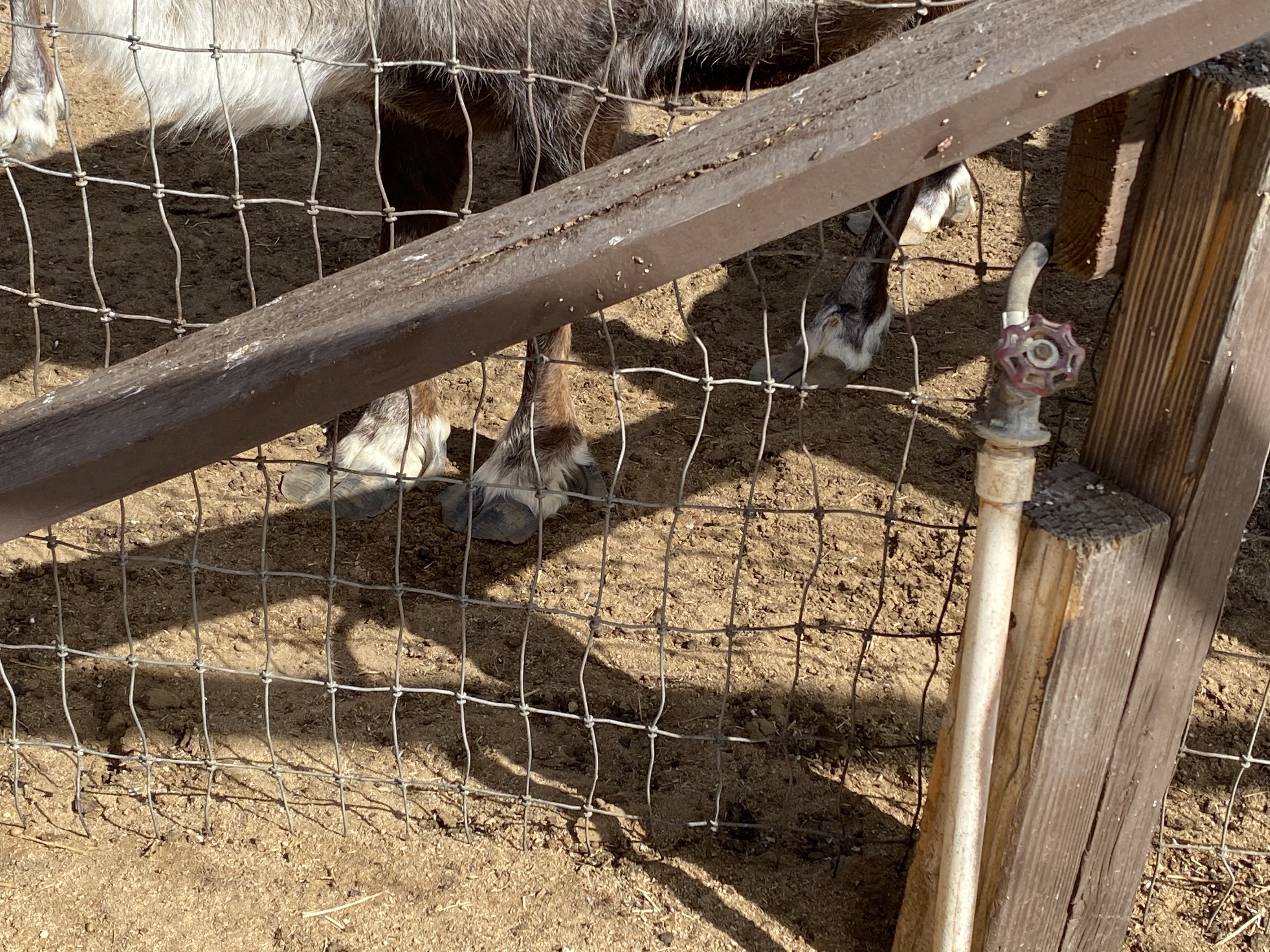
When reindeer can’t forage freely in their natural environment, they have to rely on humans to feed them. Yet at rental companies, roadside zoos, and holiday displays across the country, handlers have repeatedly failed to provide reindeer with proper food or to ensure that they sustain a healthy weight. At an Illinois-based reindeer rental company, over half the reindeer were found to be underweight and it was revealed that the exhibitor had been severely underfeeding them. A Washington roadside zoo received an official warning from the USDA for failing to provide a reindeer who was severely underweight with adequate veterinary care. Her ribs were visible, and her hips were sunken. And a reindeer being used at a holiday display in Missouri was significantly underweight as well, with her bones prominently visible, and many patchy areas of hair were missing, with signs of a skin condition that may have been contagious to humans or other animals.
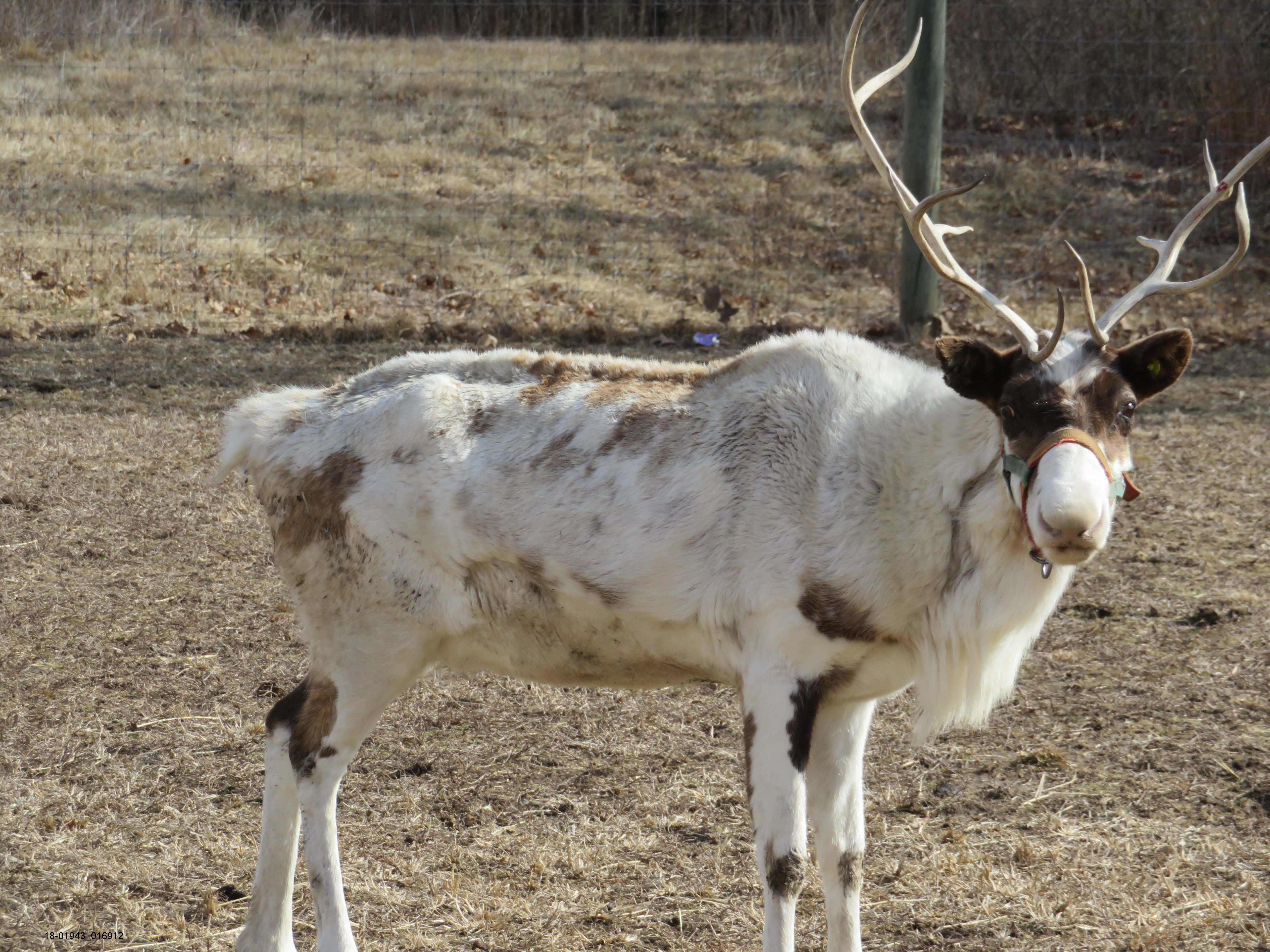
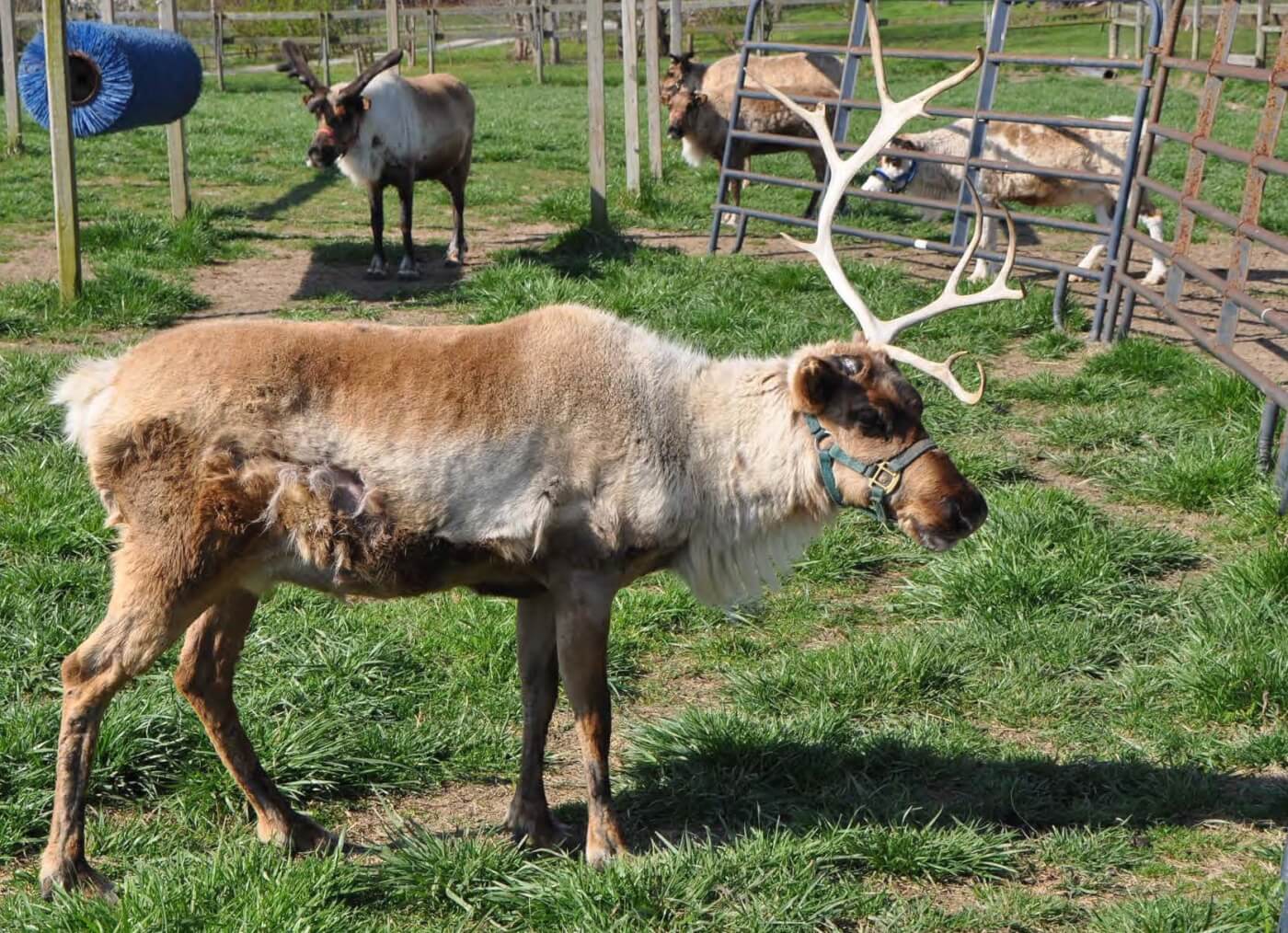
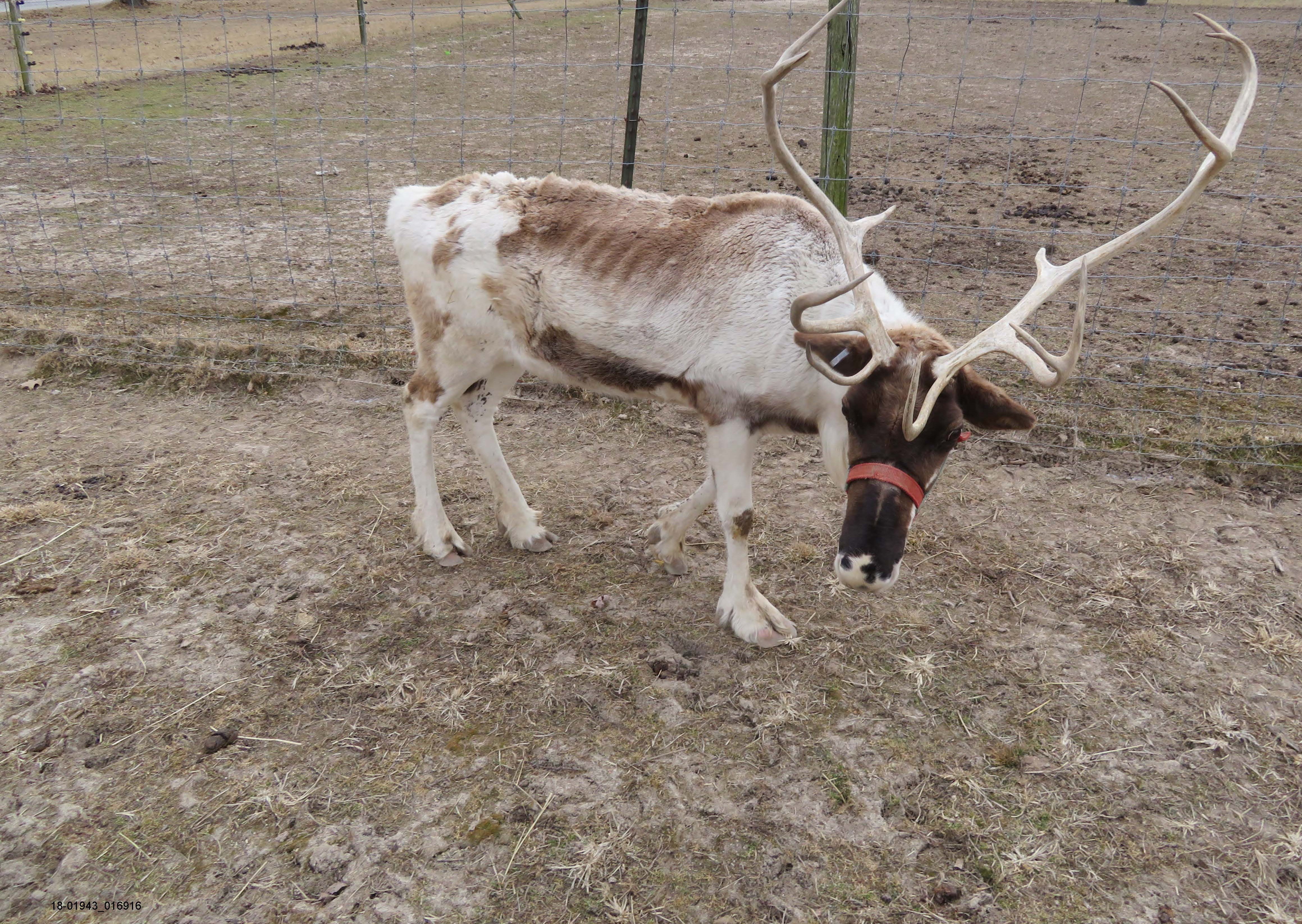
Hair loss from possibly contagious skin conditions and discharge from eyes and noses seem to be common among reindeer kept in shoddy conditions. A reindeer at an Indiana exhibitor had patches of hair loss that left the skin bare, indicating a potential bacterial or a fungal infection. The facility had assumed that the animal was shedding, so it hadn’t reported the condition to a veterinarian. A reindeer rental facility in Illinois was cited by the USDA for failing to notify a veterinarian that a reindeer had a swollen, cloudy eye with brown discharge. And a Colorado-based reindeer supplier for holiday events has been cited for failing to supply veterinary care to multiple reindeer who were limping, a juvenile reindeer who had thick yellow nasal discharge, two reindeer who were thin, and a reindeer who had shallow rapid breathing and walked with a staggering gait.
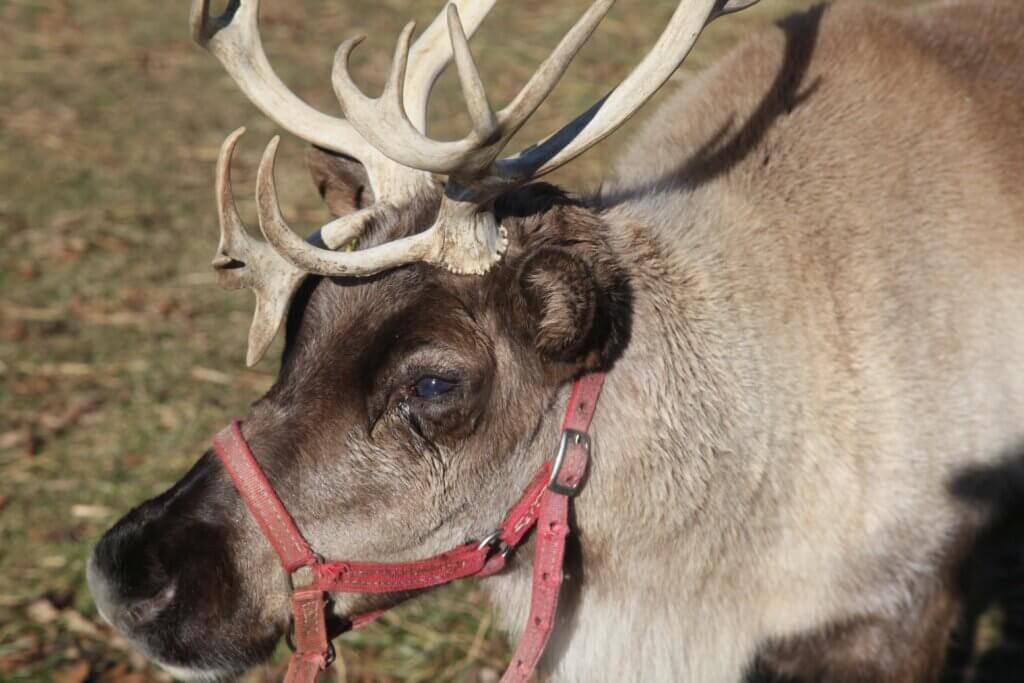
These are only a fraction of the citations and instances of physical neglect that have been reported. Reindeer exploited for “Christmas joy” also suffer mentally and emotionally from being kept away from their herd and natural environment. Using reindeer for Christmas events is speciesist, not joyous—period.
Humans and Reindeer Both Exposed to Unsafe and Unsanitary Conditions
When they’re not being carted around to Christmas events, reindeer often live on farms or in rental facilities.
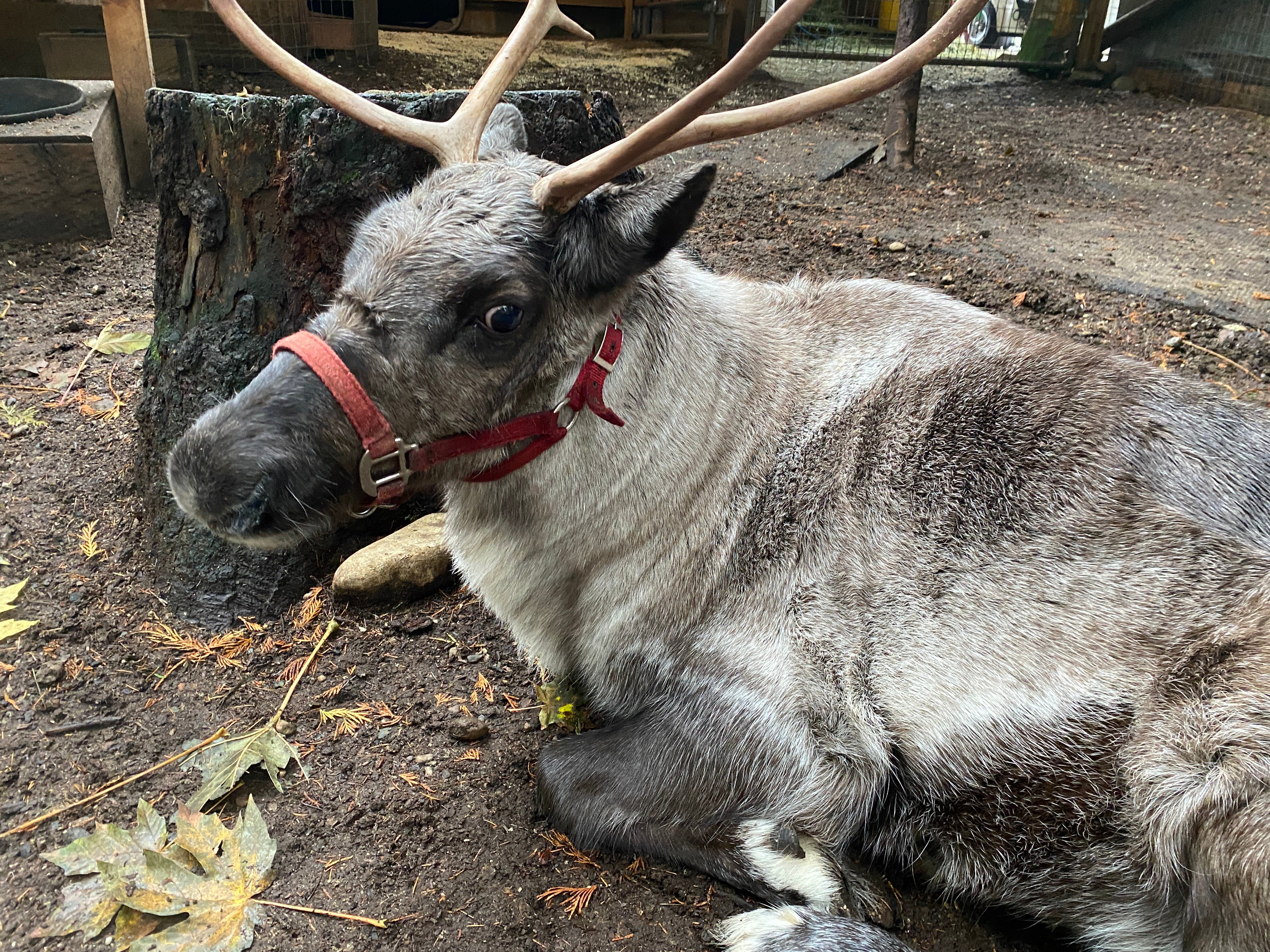
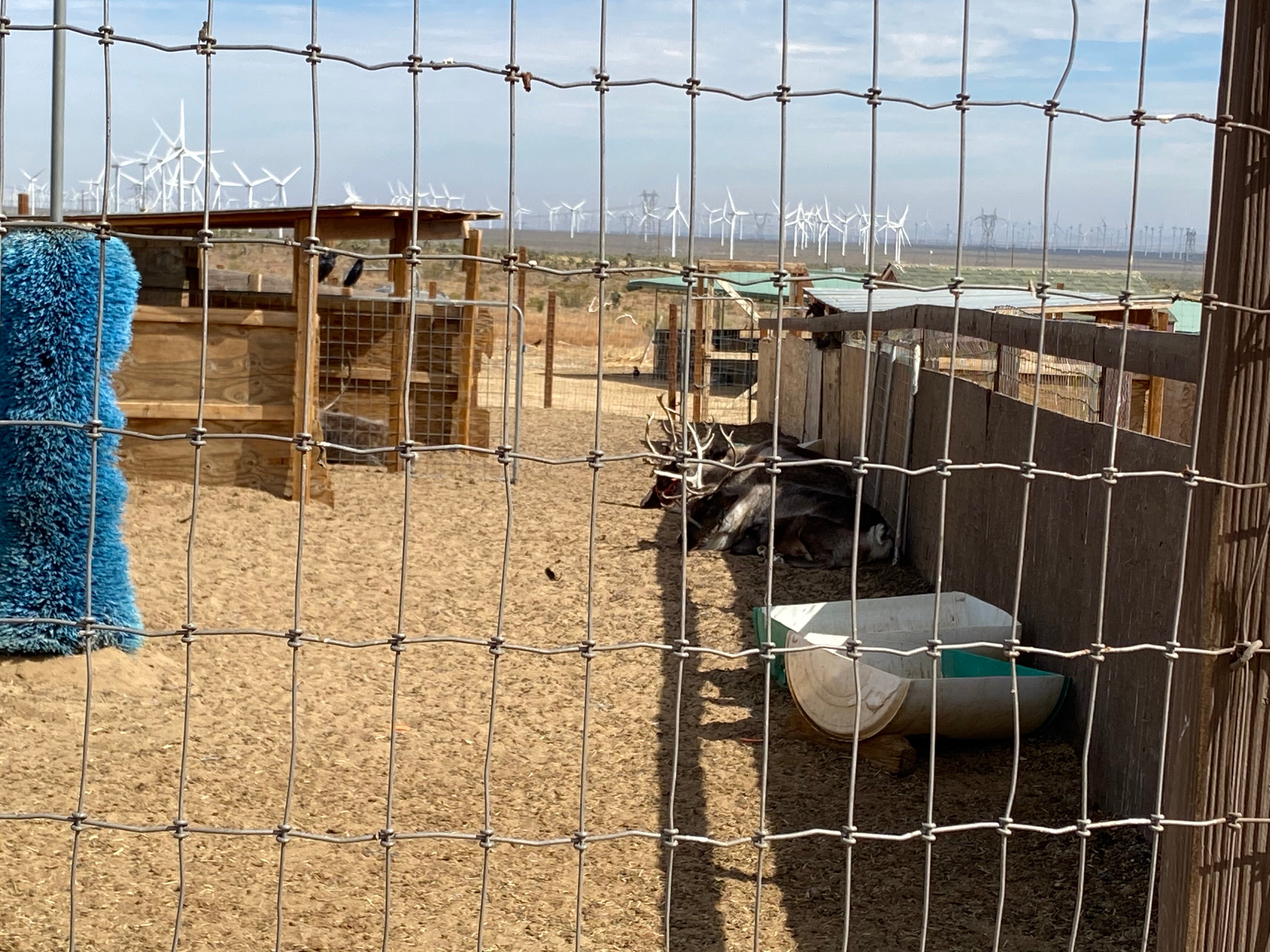
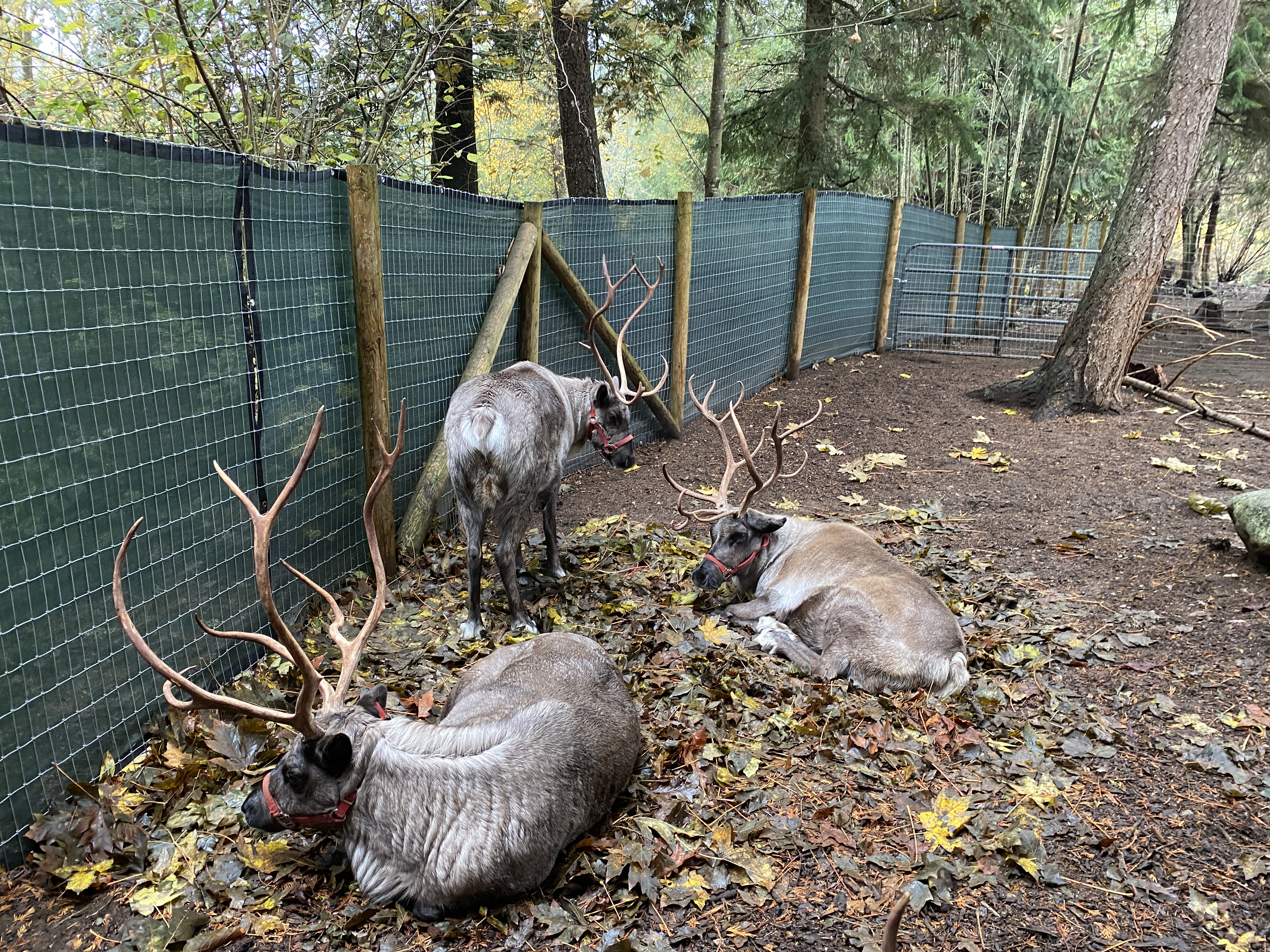
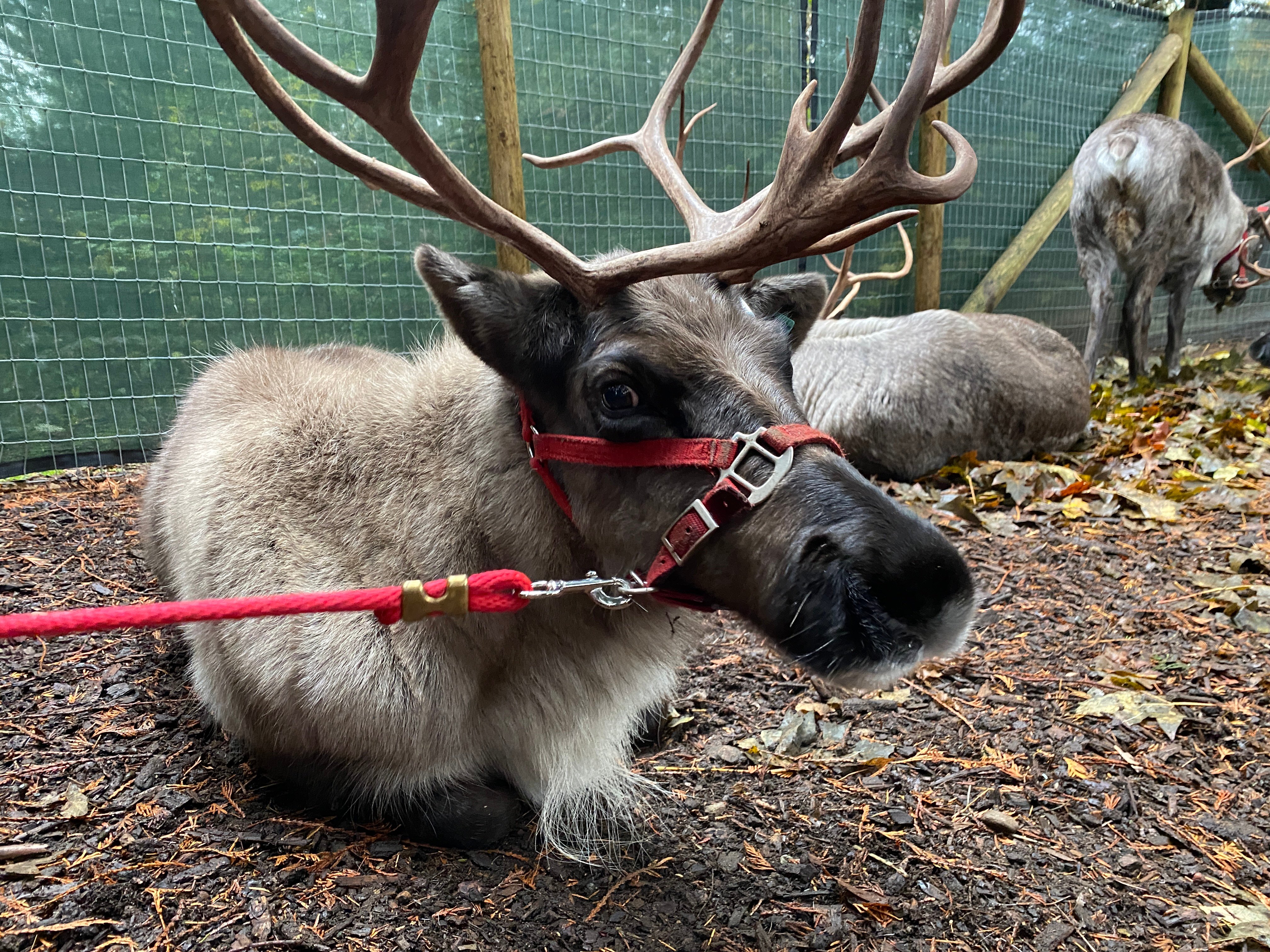
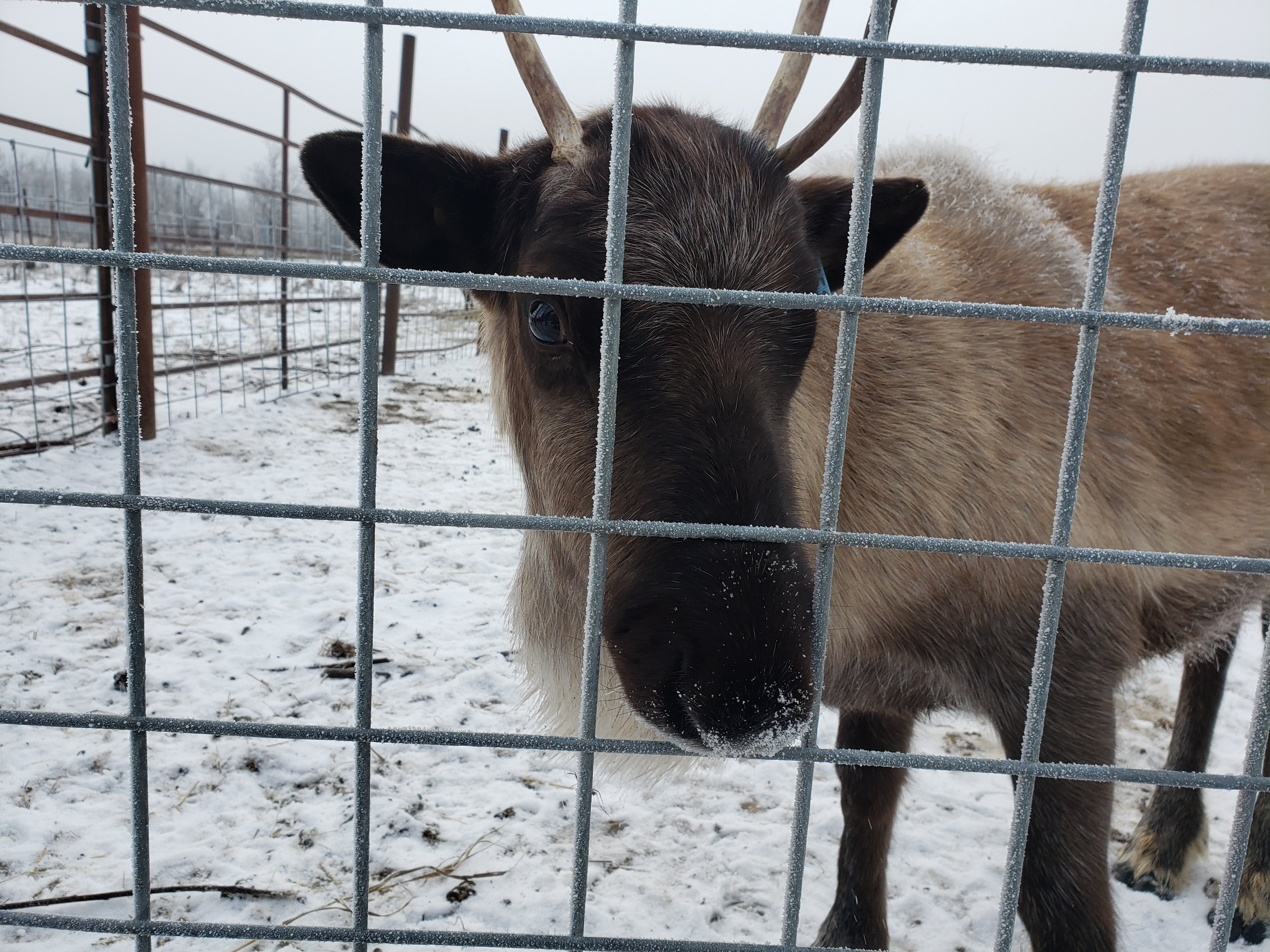
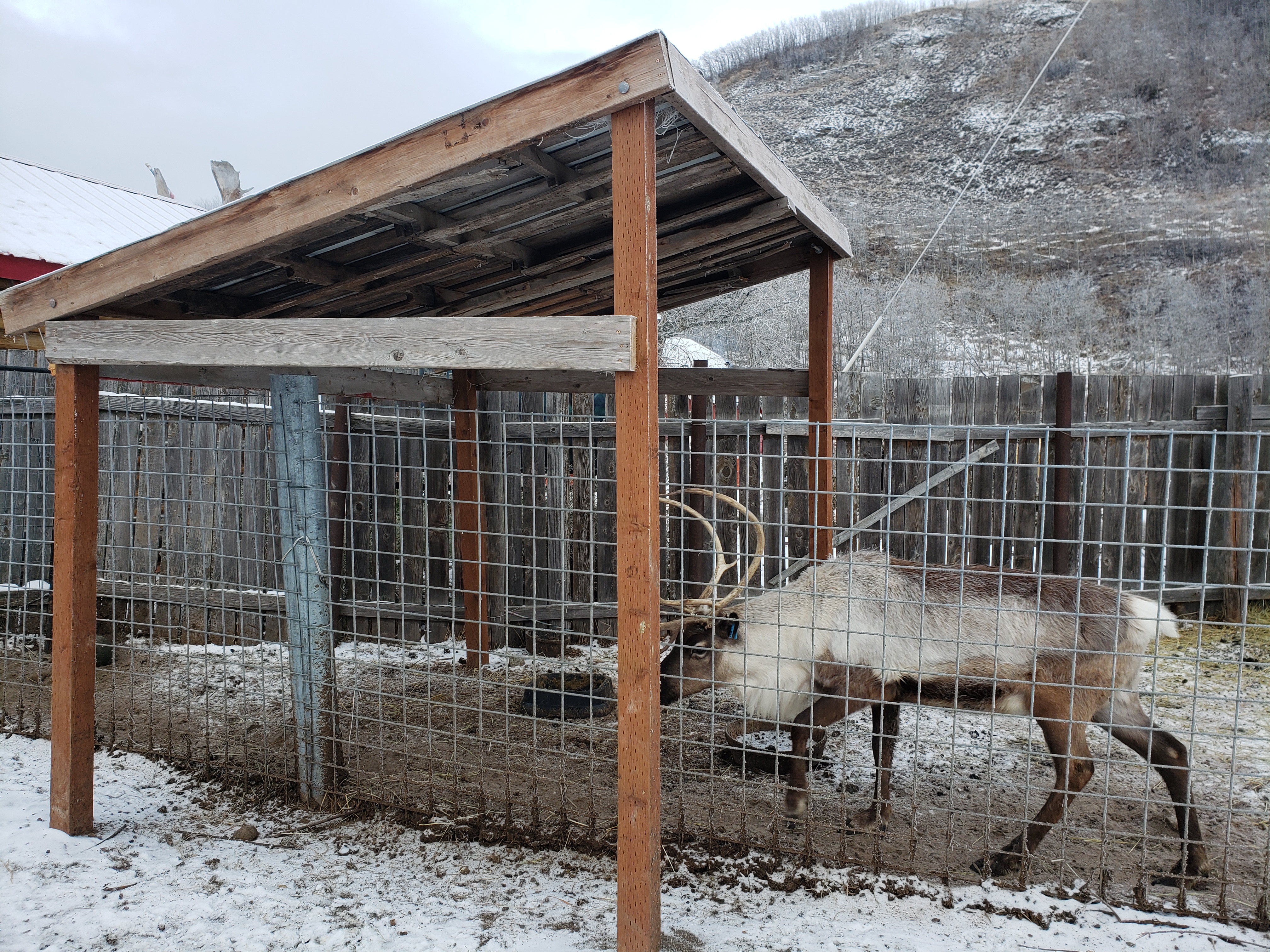
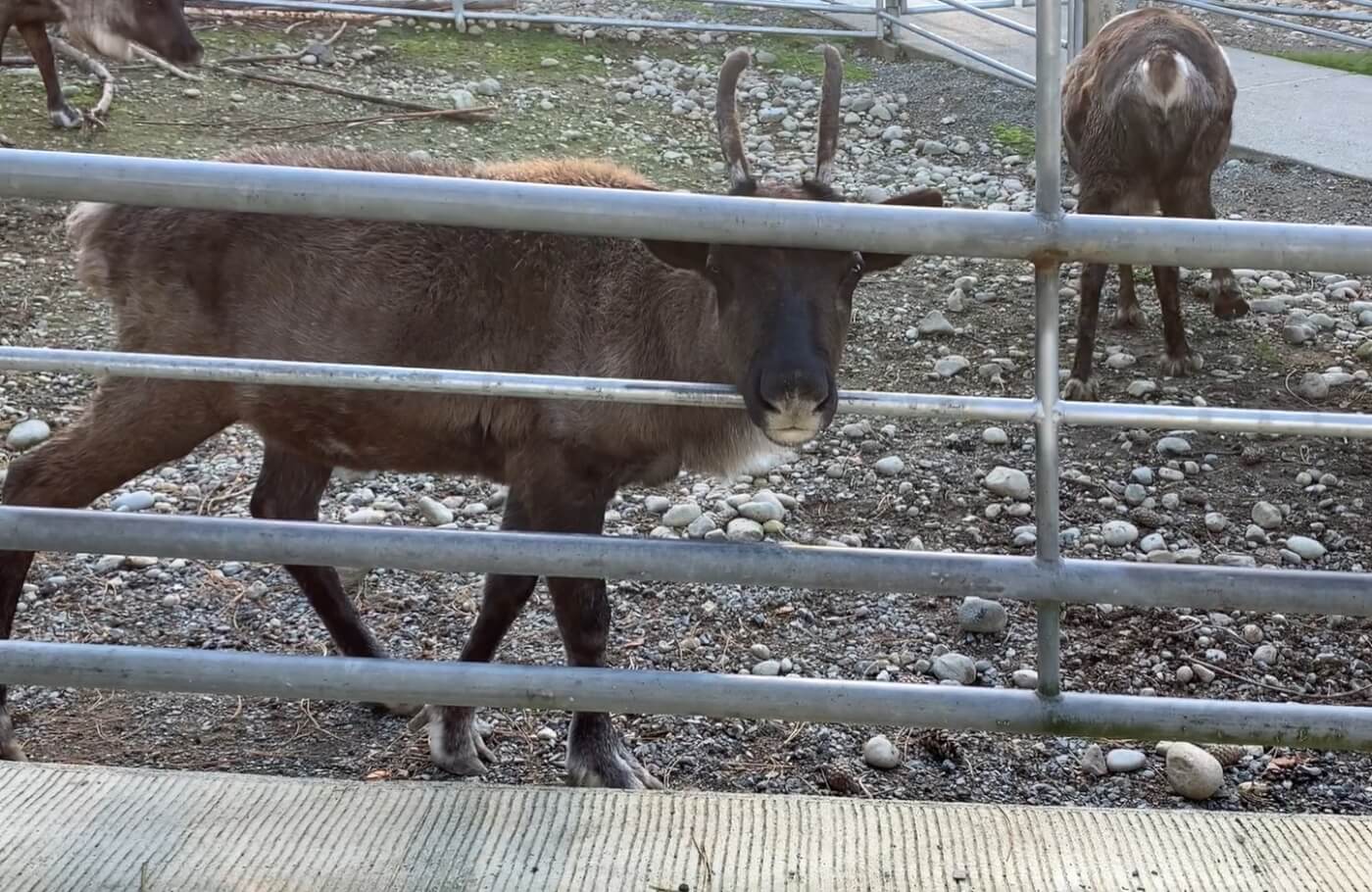
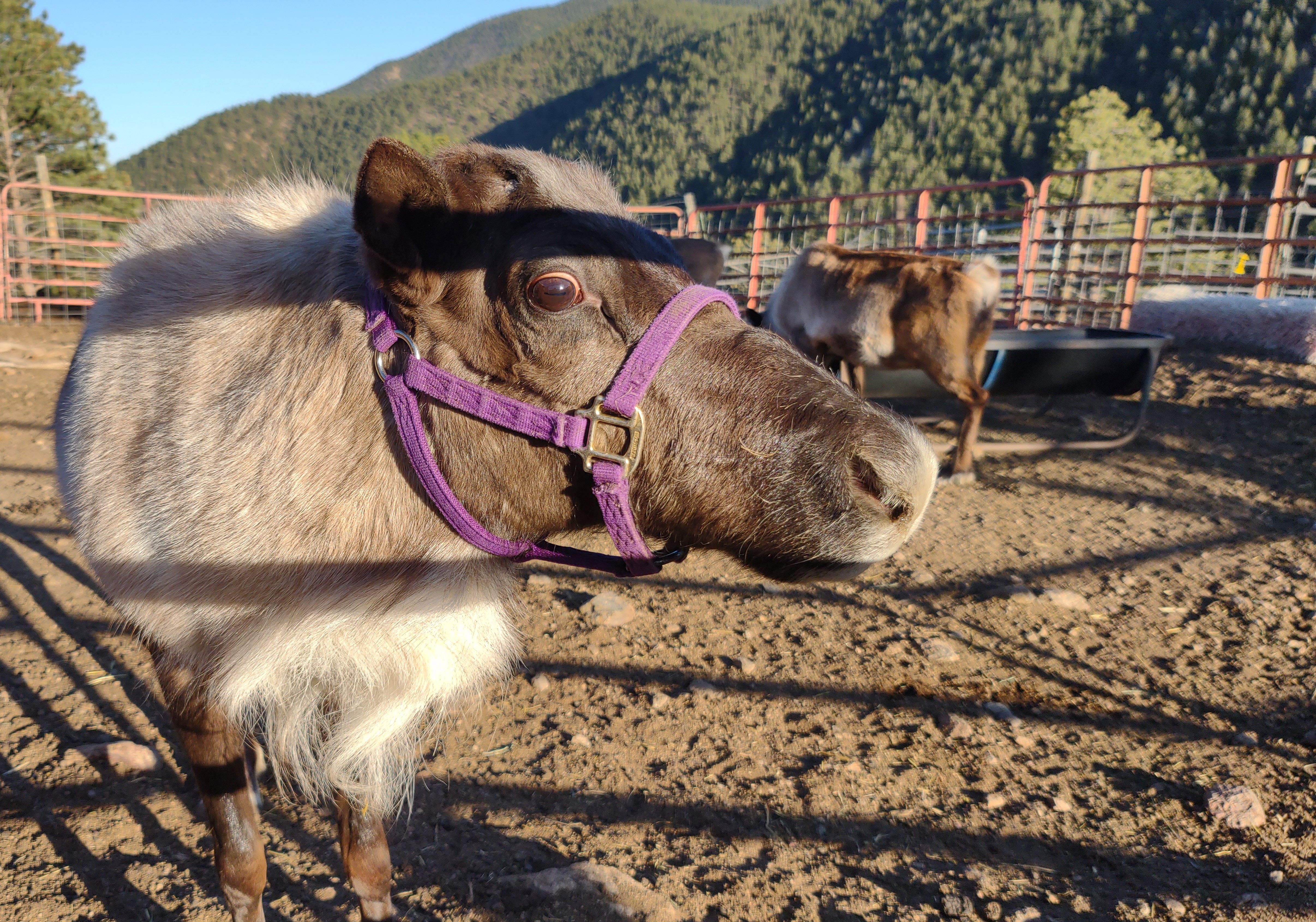
Reindeer rental facilities all across the country have been cited by the USDA for confining reindeer to enclosures that are unsafe, unsanitary or in disrepair, risking their health and that of humans. An exhibitor in Colorado made incompatible reindeer dangerously share the same space, resulting in a one-year-old female named Zero being rammed so violently that her cause of death was noted as “a large amount of internal bleeding,” and a three-year-old male named Yukon dying a day after being gored. One exhibitor in New York was cited for routinely “manhandling” the reindeer and causing the animals undue stress and for failure to maintain clean enclosures, which “had not been sanitized in years, if ever.” At a California rental facility, conditions were so unsanitary that flies attracted to the buildup of feces were covering the eyes of reindeer. A Tennessee supplier was cited for failing to clean reindeer shelters—urine and feces had accumulated to the point that the ground was slick and uneven. The reindeer didn’t even have access to clean water.
Keeping reindeer on farms and at other facilities puts interns, employees, and the public in harm’s way. At an Illinois facility, an intern was seriously injured and had to undergo surgery after a reindeer pushed her against a fence and punctured her with his antlers. That reindeer was only acting on an instinctual fear of humans—this incident would never have taken place if the animal had been left in peace in their natural environment.
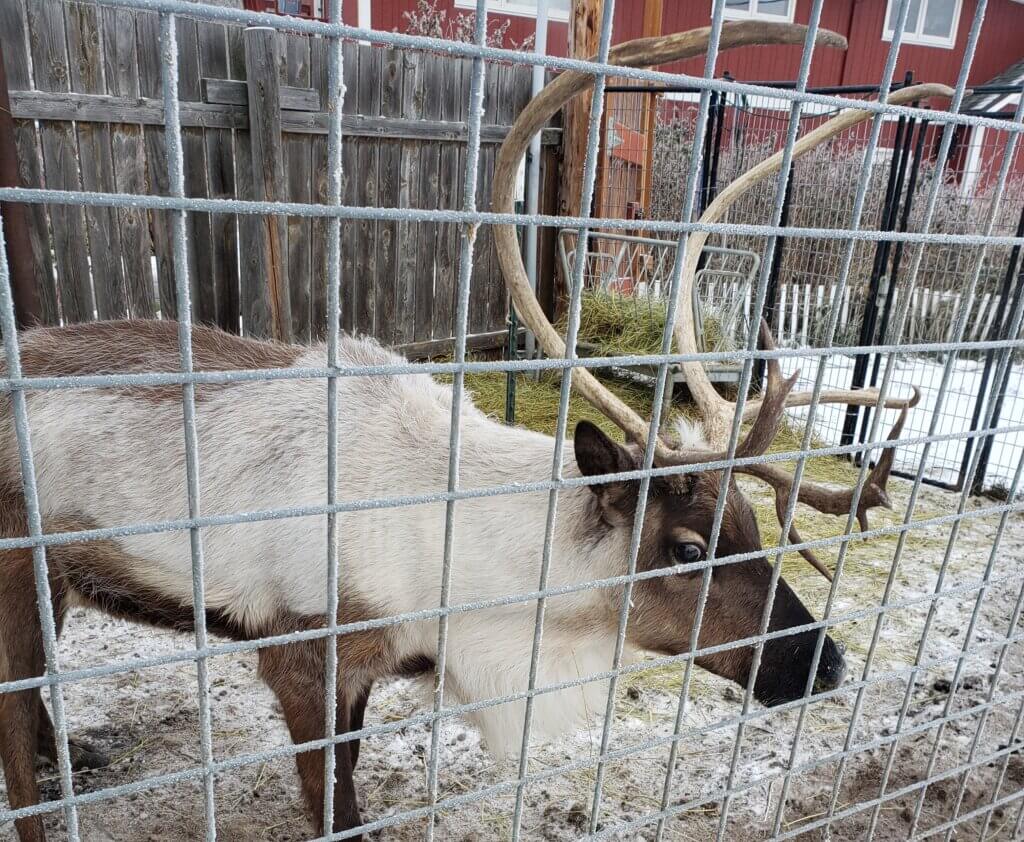
Reindeer, like all other wild animals, can be easily scared and act unpredictably when they’re forced to live outside their natural environment. At an event in Colorado, reindeer were being used as props for photo ops and other public encounters when one got spooked and escaped from a handler. She ran through city streets and swam through a reservoir before being recaptured the following night. The USDA cited the exhibitor because of the animal’s undoubted significant stress and risk of injury or loss of life because of the incident. Following a holiday exhibit in Utah, two reindeer jumped from a trailer while in transit and were struck by vehicles. One was killed on the scene, and the other died less than a week later, succumbing to severe injuries. The USDA gave this exhibitor an official warning for failing to protect the animals from harm.
Help End This 'Nightmare Before Christmas' for Reindeer
With your help, we can end the use of reindeer as holiday props. After hearing from PETA about the cruelty inherent in using live reindeer in Christmas displays, many venues have stopped exploiting reindeer for their holiday celebrations. Organizers of a Tennessee parade, a Pennsylvania home décor store, home and garden centers in Pennsylvania and Oregon, and event venues in Colorado, Idaho, and Michigan have all abandoned the use of live reindeer after PETA supporters pointed out how these sensitive animals suffer for holiday entertainment.
These holiday events are over this year, but check again next year to take action for reindeer!
